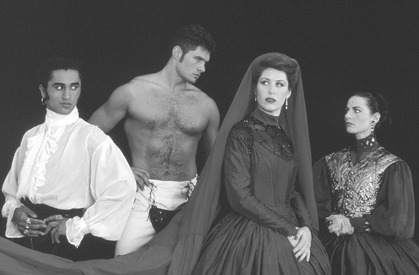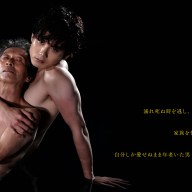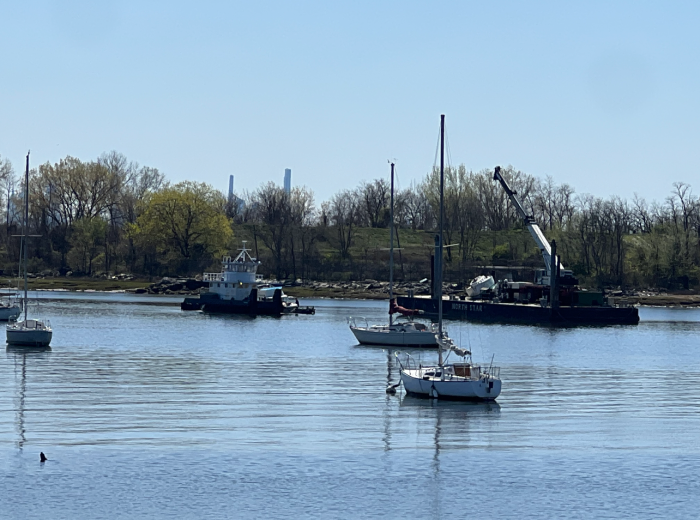MoMA’s global film supplement
The innovations of early ‘90s New Queer Cinema paved for the way for LGBT films to become a niche market, which is probably not what directors like Todd Haynes, Tom Kalin, and Gregg Araki intended. Identity politics make strange bedfellows. The only common thread between Ang Lee’s “Brokeback Mountain” and Apichatpong Weerasethakul’s “Tropical Malady” is their characters’ sexuality, expressed in quite different ways, yet both are considered “gay films.” The problem with niche marketing is that the understandable desire not to be stereotyped can cross over into a demand to be flattered. Logo is unlikely to show any films depicting father-son incest, like Tsai Ming-liang’s “The River,” or even a view of living with AIDS as pessimistic—but without any tragic grandeur—as Anahi Berneri’s “A Year Without Love,” which plays in the second part of MoMA’s series “Another Wave: Global Queer Cinema.” “Another Wave” offers a supplement to the vision of queer cinema offered up each summer by the New Festival. It doesn’t ignore North America and Western Europe, but it treats them as part of a larger world. African, Latin American and Middle Eastern visions of sexuality merit equal time, while in films like Canadian director Elle Flanders’ “Zero Degrees of Separation” national identity is as important as gayness. While gender parity isn’t exactly the first half’s strength—it includes only two programs of films by women—the percentage of female directors’ work increases in the second half, which runs from September 1-16. That section also includes a program of shorts about AIDS, as well as one of films by Jim Hubbard, who helped curate the series.
The series is particularly strong on Asian films, including “Tropical Malady,” Stanley Kwan’s “Lan Yu” and Malaysian director Amir Muhammad’s excellent short “Pangyau.” Yonfan’s 1995 “Bugis Street” takes place in ‘60s Singapore, where 16-year-old Lian (Hiep Thi Le) moves into a hotel primarily occupied by transgendered prostitutes. Naive at first, she’s shocked to discover that one is a biological man, but she quickly comes to feel at home among them. Featuring several scenes of full-frontal male nudity, “Bugis Street” takes a sledgehammer to stereotypes of Singaporean prudishness, but at heart it’s an old-fashioned melodrama. The plot is episodic, progressing from vignette to vignette. For all the hookers’ flamboyance and diva attitude, Jacky Tang’s cinematography is the real star here. He fashions a dazzling look for the film, full of deep primary colors. Although its depiction of sex work is rather sanitized and the ending a bit pat, but “Bugis Street’s” bittersweet mood is appealing and powerful. “Lan Yu,” adapted from a novel published anonymously on the Internet by “Beijing Comrade,” was shot in Mainland China without government sanction by Hong Kong-based director Kwan. Through a love story between a rich man in his thirties and his much younger partner, it reflects obliquely on Tianamen Square and more directly on the rise of capitalism in China. Even while acknowledging the closet’s pressures, it takes gay sexuality for granted. It welds together a romance and depiction of the ups and downs of Chinese life in the ‘90s. Via the power of money, its characters wind up exchanging roles.
In “The River,” pollution leads to agonizing neck pain for a young man (Lee Kang-sheng) who worked briefly as a movie extra; meanwhile, his closeted father faces agonies of his own. It may be hard to understand “The River” without knowledge of the entire Tsai Ming-liang oeuvre. Water imagery crops up very often in his films, but it doesn’t have a fixed meaning. Here, it may represent chaos, but it’s also a part of our bodies. Tsai’s master-shot compositions, long takes and elliptical narrative—father and son don’t meet for half an hour, at first appearing to be strangers—verge of being a cliché in Asian cinema. Nevertheless, David Cronenberg’s “The Brood” is the film “The River” reminds me most of. In many respects, it’s a horror film without being a genre film. Once he begins suffering from neck pain and constantly tilts his head to one side, Lee’s physical presence begins transforming—his anxiety stems as much from discomfort with his body as any other source.
Although Tsai is openly gay, his conception of homosexuality here, including one of the bleakest sex scenes ever filmed, seems a little blinkered. That said, sexuality of any kind is rarely a cause for celebration in his work. Taken on its own, “The River” might seem overly miserably, but it forms the most extreme point on a cube. Recycling the same actors and imagery, Tsai’s work is testimony to an obsession that surpasses any particular setting or subject matter.
gaycitynews.com


































